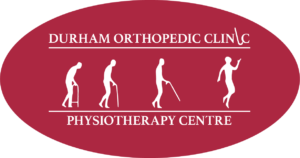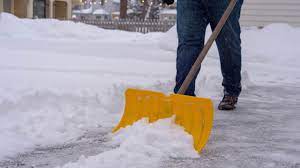Snow shovelling is a common cause of back pain or it can often be the cause of flare-ups of pre-existing back conditions or injuries. Recent epic snow falls have resulted in an increase in snow shovelling injuries at our clinic. With 6 inches of snow fall, a person with a double driveway could be shovelling between 1100-1500 Ibs of snow and that repeated movement with all that weight can be hard on the back.
Using appropriate snow shovelling techniques can go a long way to prevent injuries.
To avoid low back injuries with shovelling:
- Avoid shovelling first thing in the morning as your muscles are not warmed up and we tend to be stiffer. Also in the morning, spinal discs are maximally hydrated, which may increase the risk of injury.
- Warm-up your muscles by stretching your low back and hamstrings before shovelling. This helps loosen the muscles and improve blood flow to these muscles.
- Use an ergonomic snow shovel designed to push the snow. A snow shovel that allows you to push the snow without having to bend and twist helps prevent injury.
- Keep your back straight at all times. Avoid bending and twisting your back, instead lead with your hips and bend with your knees.· When shovelling, be sure to take a stretch break by bending backwards with the back, 3-5x’s, every 10 minutes or so.
If you experience back pain with shovelling, it’s important to keep moving.
- Moderate pace walking, making sure to swing your arms helps keep the muscles moving and helps prevent the muscles from stiffening up.
- Gently stretch away from the direction of injury and hold the stretch 20-30 seconds
- Since shovelling involves bending forward, gently stretching backwards 5-10 times every few hours may decrease the stress to the low back.· Ice helps reduce inflammation to the strained muscles.
If you hurt yourself, snow shovelling or have concerns with your technique contact our physiotherapist at the Durham Orthopedic & Sports Injury Clinic at 905-428-7800 to discuss these matters with our Physiotherapist.


